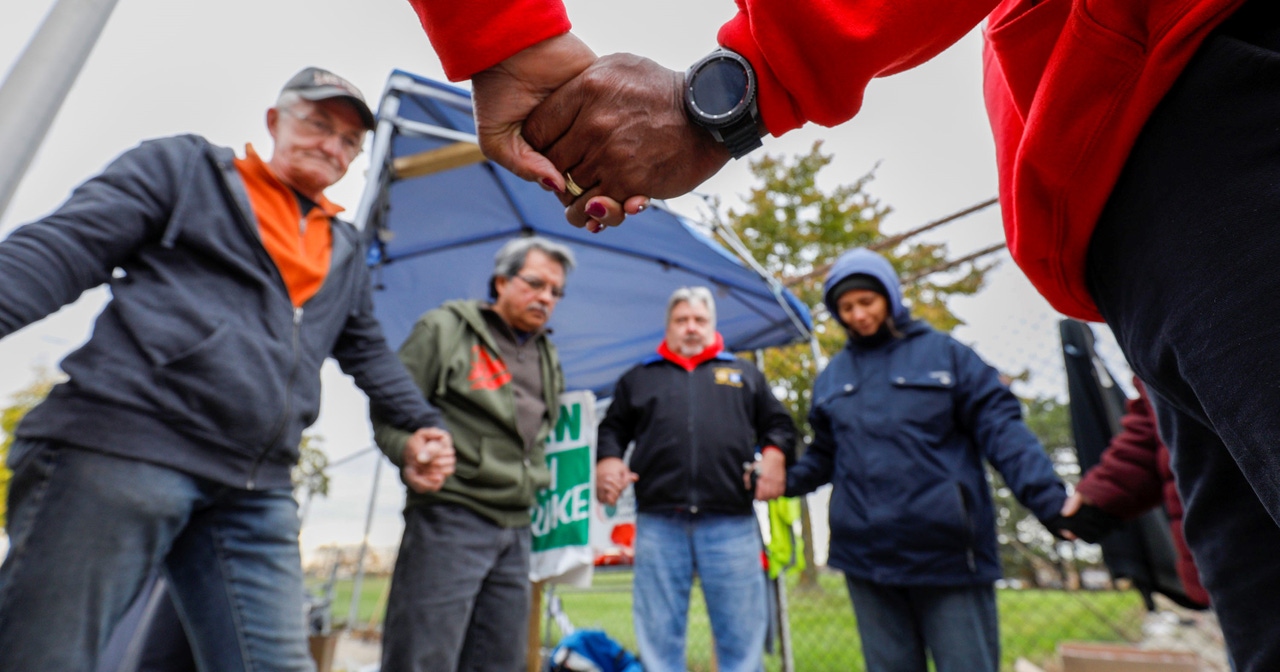UAW Argues Over Election of New OfficersUAW Argues Over Election of New Officers
The referendum was set up by a federal monitor after a dozen union officials pled guilty to mishandling union money. The current executive board is defending the UAW’s voting system, while critics argue the system perpetuates the influence of the long-established administrative caucus.
November 24, 2021

Members of the United Auto Workers are now voting on whether to change the union’s constitution to allow for the direct election of top officers in the wake of a scandal that shook the union’s foundation and severely damaged its reputation.
The referendum was set up by the monitor imposed on the union after a dozen union officials, including two past presidents, Dennis Williams and Gary Jones (pictured below, left), pled guilty over the two years to crimes such as wire fraud, embezzlement and accepting money from employers in violation of federal labor law.
The monitor’s election officer has sent one million referendum ballots to union members and UAW retirees, and ballots must be returned by the morning of Nov. 29.
The current executive board up to and including President Ray Curry is defending the UAW’s current system in which top officers are selected by delegates to a convention. Union leaders now insist they are taking steps to eliminate corruption and curb abuses.
The convention delegates are selected by UAW members, but the rules and procedures used throughout the convention are controlled by the so-called “Administrative Caucus,” which is an extension of the executive board.
Critics of the system argue the conventions have become tightly scripted affairs that perpetuate the influence of the caucus, which has for decades controlled union funds and appointment to union staff position. Little dissent is heard during the convention proceedings or drowned out with noise makers, according to critics.
The campaign for change is getting support from a cross section of union members, including local UAW leaders such as Bruce Baumhower, the long-time president of UAW Local 12, which has more than 10,000 members.
“I’m in favor of direct election,” says Baumhower, adding he believes it will make the union stronger in the long run.
Support for change also is evident on social media, where the administrative caucus’ recent history of concessions and corruption has been highlighted in a variety of posts.
The campaign for direct elections is being organized by UAWD, the fledgling caucus modeled after Teamsters for a Democratic Union, which has pushed for change inside the International Brotherhood of Teamsters.
That organization is running an active campaign to reach union members, according to Scott Houldieson, a former UAW vice president from Local 551 in Chicago and one of UAWD’s leaders.

gettyimages Gary Jones UAW_1
Justin Mayhugh, another UAWD activist, says via Facebook, “Regardless of the outcome, UAWD will also be sending out a series of communications soon about next steps after the vote. UAWD members and supporters will be playing an important role in making those decisions, beginning with meetings in December and January.”The union’s established leadership is fighting back, using former UAW staffers to post warnings about how the change to direct election would lead to “outside” money influencing internal union elections. The outside influence argument has been at the heart of the UAW’s long-standing objection to direct elections.
“The Administrative Caucus supports creating greater safeguards that protect the integrity of our union. Changing how we elect leaders doesn’t address that. This is where the fight should be: strengthen our union, improve our delegate voting system and keep the integrity of our great union,” notes a post on the “Protect The Wheel” website put up by the administrative caucus.
However, supporters of the direct election of executive board members believe it will help unlock new energy in the union as it faces challenges organizing new members in the auto sector.
The coming of electric vehicles also represents a threat for the UAW because the new companies in the sector – beginning with Tesla and now Rivian and Lucid – are non-union. “We have to organize these electric vehicle plants,” observes one UAWD member during a pre-election virtual meeting sponsored by the monitor’s election officer.
In a new report, the monitor finds the UAW’s established leaders, despite the scandal, are finding it difficult to change internally. The UAW is making some changes under pressure from federal prosecutors and the monitor.
“But the Union has also fallen short in other areas, including in failing to promptly adopt a centralized compliance function and in not doing enough to respond to repeated warnings about the pressing need to transform its culture,” the monitor notes in a recent report filed with the U.S. District Court in Detroit.
Citing information collected by outside consultants hired by the union, the monitor notes the UAW had an “unhealthy culture” in which staff were unwilling to disagree with superiors about problems or issues “because they feared losing their position for speaking up.”
About the Author
You May Also Like